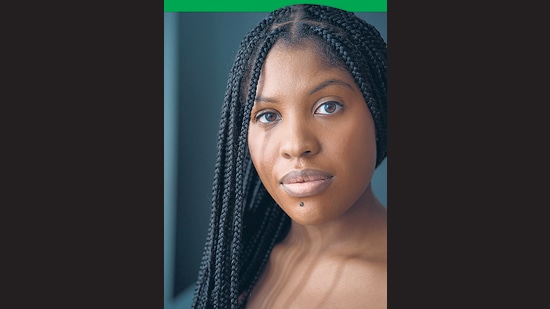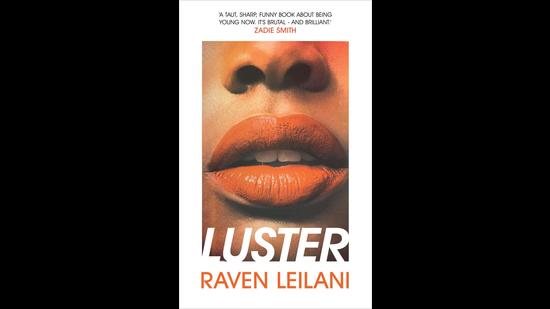Interview: Raven Leilani, author, Luster
American author Raven Leilani’s award-winning debut novel is a bold dive into the politics of sex and race, surrounded by unpredictable human behaviours
How did the story of Luster come to you?

I was working toward my MFA at NYU at the time, and I started the program with an entirely different manuscript. I planned for this manuscript to be my first book, but the mentors I found there pushed me to write with more care, and I started Luster, which immediately felt more urgent, more true.
Who did you have in mind while writing the character of Edie?
I don’t know if it’s possible, or even my intent to depict a complete picture of the varied experiences of a generation, but as I wrote it felt necessary to treat those experiences with humour and specificity. Edie is unsure, and prone to questionable decisions, and I think that space of uncertainty is where art comes from, something we all wrestle with in order to do the work. As for Edie’s choices, I wanted her to have the space not only to be uncertain, but to be fallible, to make mistakes, which are informed not only by her humanity and ego, but a pressurized context that requires her to respond in kind.
Do you think sex-writing is overrated or underrated?
I write sex because it’s fun, but also because sex -- how they have it, if they have it -- is great character building. One way of making the body concrete. Some of my earliest experiences with fiction were with texts that were unabashed in their presentation of the erotic, and I’m always striving for that. I’m always striving to capture the private negotiations we make around our bodies, and capture it in a way that feels honest.

Your comments on interracial romance – a young Black woman starting having an extra marital affair with an older white man, who with his white wife has adopts a black female child.
I wrote this book for black women, which is a function of being a Black woman myself, or of the project of this book, which was to put a black woman at the centre, to treat her reality with tenderness and seriousness. The interracial dynamic is significant in that it is a study in contrasts, one way to interrogate discrepancies in power, empathy, and the ability to live authentically. At the same time, I tried to explore the complicated pleasure of imbalance, the thrill of a nakedly transactional dynamic, what it means to reject it and also lean into it.
READ: Review: Luster by Raven Leilani
Tell us about Edie’s relationship with Rebecca – the girlfriend and the wife.
Rebecca and Edie’s relationship is subject to a steep power imbalance. Edie needs to eat, a place to stay, someone to witness her, and she pursues these primary needs on the terms of a woman who cannot fathom this kind of precarity. But Rebecca too is getting something from Edie’s presence in their house. A supposedly reinvigorated marriage, a maternal surrogate for her adopted daughter. So as they draw closer, the conspiracy between them is frustrated by the emotional consequences of that transaction, by the friction of their lived experience.
Did you borrow glimpses from your real life into the novel?
Painting was my first love. I started working very young and was enrolled in a rigorous program where I was constantly producing work. For a while I thought this was what I would do with my life, but as I grew older I stepped away. I stepped away because I felt my work wasn’t as good as it needed to be, and it wasn’t, and that first experience with artistic failure has informed a lot of my work. You can see that thread clearly in Edie’s story. And I still love the craft enormously, but that formative experience left an impression on me, and to this day I am still preoccupied with the role of failure and doubt in art-making.
Arunima Mazumdar is an independent writer. She is @sermoninstone on Twitter and @sermonsinstone on Instagram.





